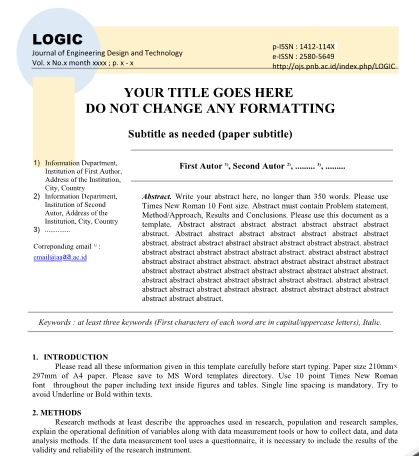The Effect of Chiller and Hot Runner Temperature on Appearance of 100 mL Pet Bottle Products Through the Stretch Blow Molding Process
Keywords:
Injection Stretch Blow Molding, Chiller, Hot Runner, PreformAbstract
The using of plastic in human life is increasing over time. This increase occurs because plastic is not easily broken, flexible, practical, economical, and can replace the function of other items. One of the plastic molding processes is Injection Stretch Blow Molding, a plastic molding machine method that combines two processes, namely injection molding and stretch blow molding. The injection stretch blow molding process is a plastic molding machine that is melted and then injected into the mold to form a preform that is stretched and blown to form the product. This machine has a high level of precision so that the aspects of strength and appearance quality on the packaging bottle are the main assessment. The aim of this research is to determine the effect of temperature parameters on black spots, stripes and stripes on 100 mL PET bottle products. It is necessary to handle chiller temperature, hot runner temperature as independent variables in printing preforms. The control variables are material composition, cycle time, holding time, and component gap position. This type of research is experimental research and the processing method used in this research uses the design of experiments using statistical software. The level of variation in hot runner temperature parameter settings is 265°C, 270°C, and 275°C and chiller temperature is 17°C, 18°C, and 19°C. From the results of this research, it can be concluded that the significant parameters used for the chiller are 18°C, the appearance defect is 0.2% and for the hot runner it is 270°C, the appearance defect is 0.4%. This number is a significant parameter that produces fewer appearance defects for 100 mL PET bottle products in order to reduce the number of rejects.








